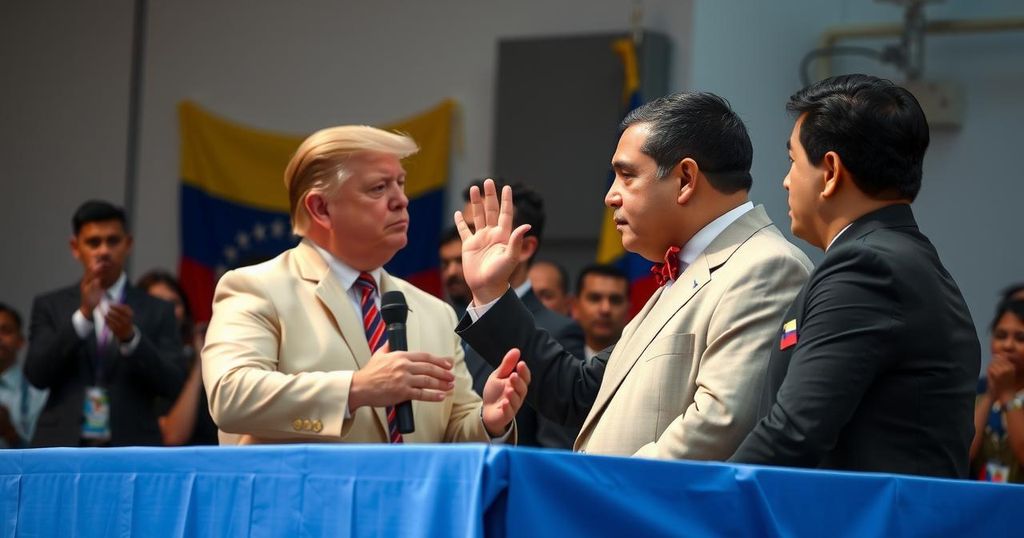Maduro’s Controversial Inauguration: Claims of Electoral Fraud in Venezuela

Nicolás Maduro was sworn in for a third term as Venezuelan president despite claims of election fraud, with the opposition asserting a landslide victory for Juan González. The U.S. and other nations recognize González, emphasizing the contentious political situation. Maduro’s inauguration was marked by severe security measures and a lack of international support, reflecting concerns over democratic integrity and global relations regarding Venezuela’s crisis.
On January 20, Nicolás Maduro was sworn into a third presidential term amid accusations of electoral fraud, marking an escalation of his authoritarian regime. This election has been described as the most significant electoral fraud in recent Latin American history, with the opposition, led by Juan González, asserting that he won by a considerable margin, as evidenced by receipts from voting centers confirmed by independent observers. With international recognition from the United States and several Latin American nations backing González, the political landscape in Venezuela remains highly contentious.
In a significant development preceding his inauguration, Maduro’s government implemented measures such as closing borders and cancelling flights to Colombia, showcasing the tensions surrounding the electoral process. While few heads of state attended the ceremony, many regional leaders opted not to recognize Maduro’s victory while endorsing González’s claim to the presidency. The implications of this election result raise concerns over democratic legitimacy in Venezuela and the broader Latin American region.
Amidst ongoing international scrutiny, the Biden administration’s attempt to negotiate with Maduro and ease sanctions in exchange for electoral reforms faltered, further complicating diplomatic relations. The role of sanctions in relation to the Venezuelan crisis remains a contentious topic, with experts expressing doubt about their effectiveness in fostering stability or meaningful change under Maduro’s rule. Opposition support for González has been robust, as demonstrated by the mobilization of thousands of volunteers who documented evidence of his electoral success, indicating widespread public discontent with Maduro’s tenure.
Nicolás Maduro has been in power for over a decade, increasingly consolidating his control over Venezuela through controversial electoral processes. His latest election, marred by claims of fraud and opposition suppression, has drawn international condemnation and raised alarms regarding the health of democracy in Venezuela. The situation has garnered significant attention from foreign governments, particularly as the United States navigates its foreign policy in Latin America. Challenges such as poverty, migration, and political instability in Venezuela continue to provoke regional and global discussions on effective responses to the crisis.
The inauguration of Nicolás Maduro for a third term as president amid allegations of electoral fraud embodies the dire state of democracy in Venezuela. With evidence presented by the opposition claiming a significant victory for González, international acknowledgment of his leadership stands in stark contrast to Maduro’s increasingly oppressive regime. The upcoming political climate and global response to this crisis remain uncertain, especially as various leaders grapple with the implications of sanctions and diplomatic recognition.
Original Source: www.washingtonpost.com






